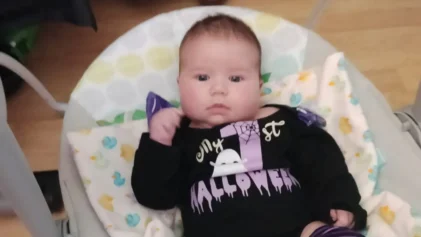Dozens of researchers around the world are racing to create a vaccine to eliminate the COVID-19 pandemic. Dr. Kizzmekia S. Corbett, a viral immunologist working with the National Institute of Allergy and Infectious Diseases, is a front-runner in its development.
Corbett is a lead researcher with Dr. Barney Graham’s coronavirus team in the Vaccine Research Center in the NIAID, which is part of the National Institutes of Health. (The NIH, an agency within the Department of Health and Human Services, is the federal government’s main biomedical research organization.)

Corbett’s team has been working in recent weeks to help test and develop An experimental vaccine invented by private biotech company Moderna Inc. Along the way, her team’s role was to grow so-called “spike” protein, a key component of Moderna’s coronavirus vaccine. (The NIH describes the spikes and virus thusly: “Coronaviruses are spherical and have spikes protruding from their surface, giving the particles a crown-like appearance. The spike binds to human cells, allowing the virus to gain entry.”)
Years of research into similar viruses had given Corbett’s Vaccine Research Center team valuable experience at growing this protein, which they did quickly and sent to Moderna. With they received the first research doses of vaccine from Moderna, Corbett and her fellow scientists immunized dozens of mice. Days later, blood samples that were collected from the mice where checked to see if the mice were producing antibodies against that all-important spike protein.
When her team sent word of the positive results, “it was absolutely amazing,” Corbett told The Associated Press earlier this month.
The work, which cleared the way for a new phase 1 clinical trial on March 3, couldn’t have moved so quickly had it not been for years of behind-the-scenes lab testing of a possible MERS vaccine, Corbett added.
“I think about it a lot, how many of the little experimental questions we did not have to belabor” this time around, Corbett said. As she saw the first promising mouse tests, she told AP, “I felt like there was a beginning of all of this coming full circle.”
Corbett had told Dr. Anthony S. Fauci, the NIAID director, it would take about 100 days to move into the trial. The group did it in 66.
Although an actual vaccine won’t be ready for another 12 to 18 months, the announcement marks a new record in moving to human testing, Bloomberg reports. The NIH fellow started her work in January, when researchers first learned how infectious and contagious the virus is and how easily it spreads.
Corbett has nearly 10 years of research experience in immunology.
She received a B.S. in biological sciences, with a secondary major in sociology, from the University of Maryland-Baltimore County in 2008. After one year of post-baccalaureate training at NIH, she enrolled at University of North Carolina, from where she obtained her Ph.D. in microbiology and immunology in 2014.


